With tattoos becoming increasingly popular, it is not uncommon to come across individuals who have extensive body art. Unfortunately, some people face criticism and even calls for their children to be taken from them. One such case is that of a Canadian man named Remy who has spent over $100,000 on tattoos and has encountered criticism on social media, with some people telling him he’s not a suitable father.
He doesn’t feel guilty about being a tattooed dad.
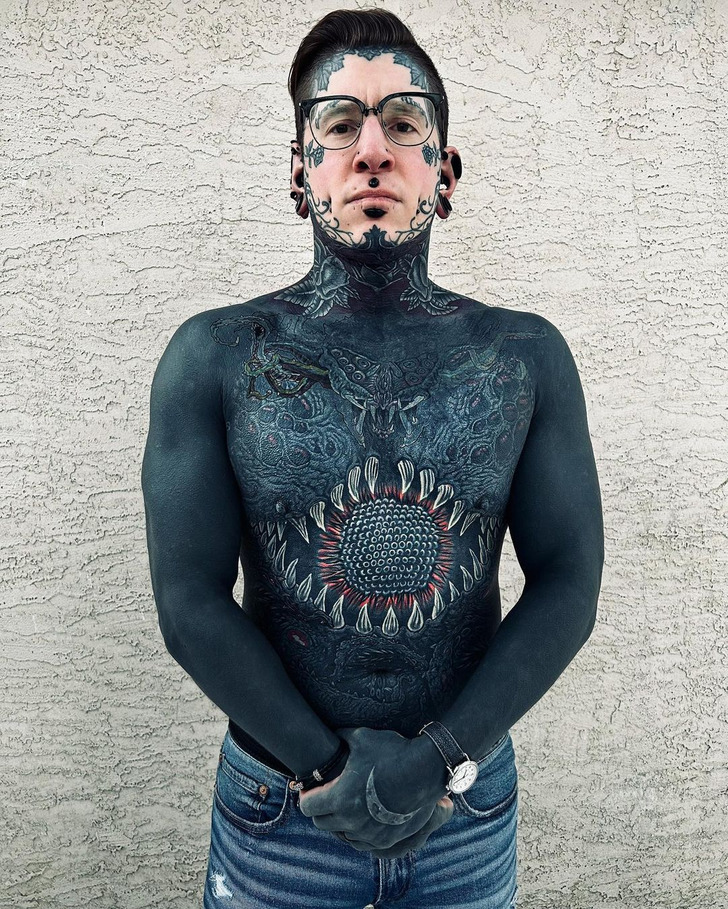
Despite his extensive amount of ink, Remy doesn’t feel guilty about his tattoos, nor does he believe they’ve changed who he is as a person or a father. He says, “Tattoos and piercings haven’t changed at all, so I wasn’t worried that my son would see me differently.”
But the man has been criticized for not being a stereotypical father.
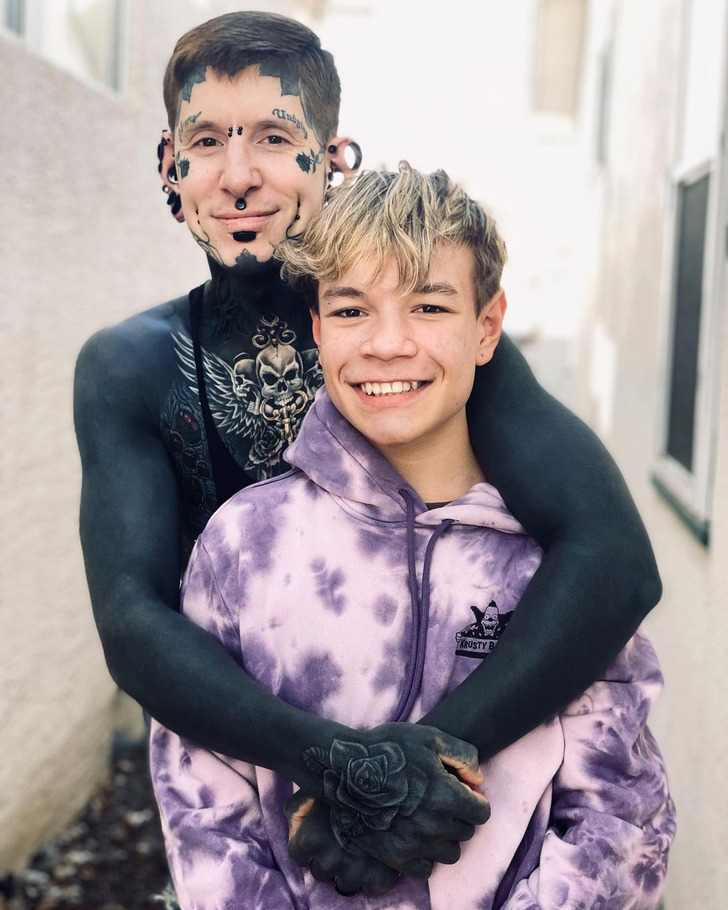
Remy shared that he has received online comments suggesting that his son should be taken away from him due to his appearance. He stated, “I’ve had a few people say things like my son should be taken from me because of how I look, but this is only ever online.”
He continued, “My argument to that would be that if you think that way, you should never have children yourself.”
Remy added that while people stare at him in public, they only say nice things and ask questions about his tattoos. “People stare a bit [in public] but they only say nice things and ask how long it took, how I handle the pain, and generally compliment my work,” he attests.
His child is nonchalant toward his father’s tattoos.
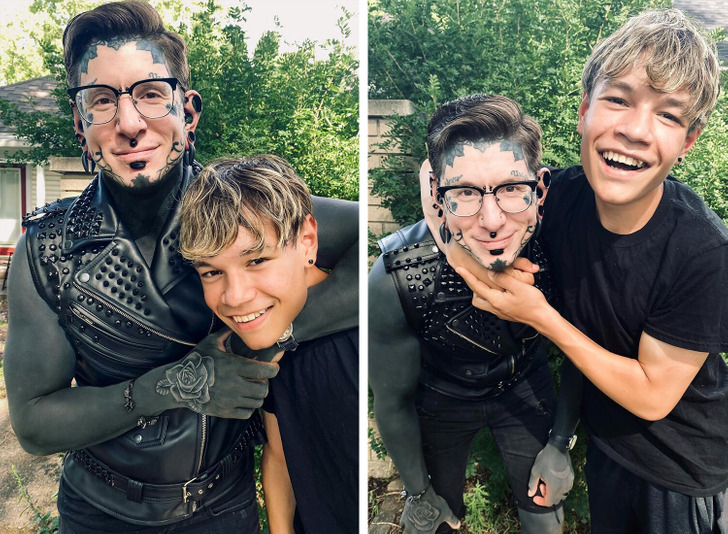
Remy’s first tattoo was of his son’s name, but since then, he has become obsessed with getting more and more ink. His son never really noticed his tattoos.
“He’s never really noticed them, as I was already pretty different looking [when he was born in 2009] — it’s completely normal for him. As he’s gotten older, he’s become very nonchalant, and it’s actually made him more tolerant of people being different looking, I believe,” Remy says.
In fact, Remy’s son’s favorite tattoo is the eye on his stomach and chest.
Being a good parent has nothing to do with superficial looks.
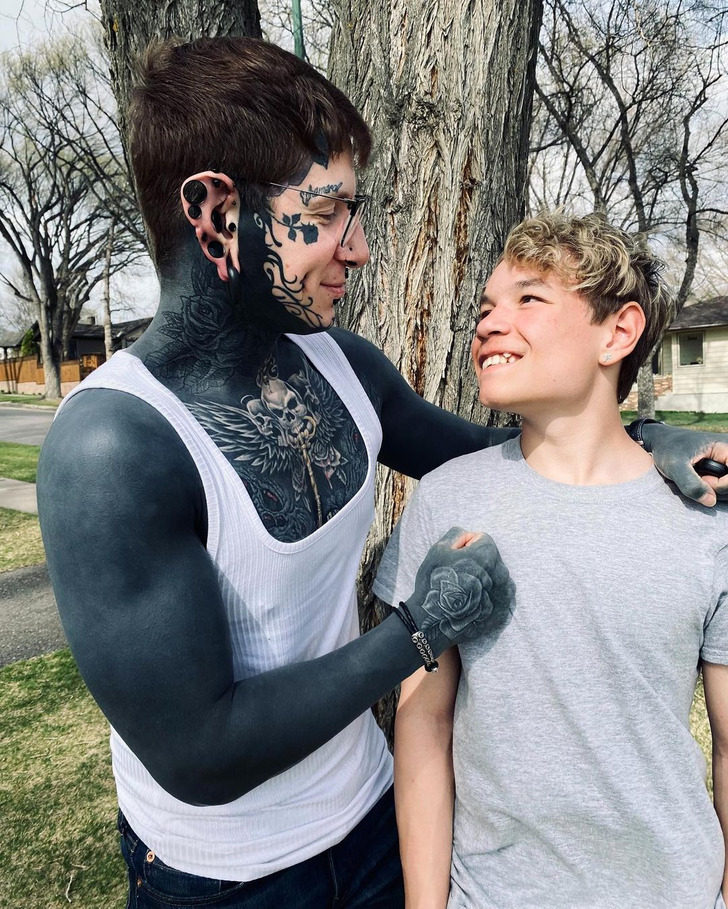
While some may argue that Remy’s tattoos make him an unfit parent, it’s important to remember that body modification is a personal choice and doesn’t necessarily reflect one’s ability to be a good parent. As long as a parent is providing a safe and loving environment for their child, their appearance should not be a factor in determining their ability to care for their children.
One of Remy’s fans explained things in a wonderful way.
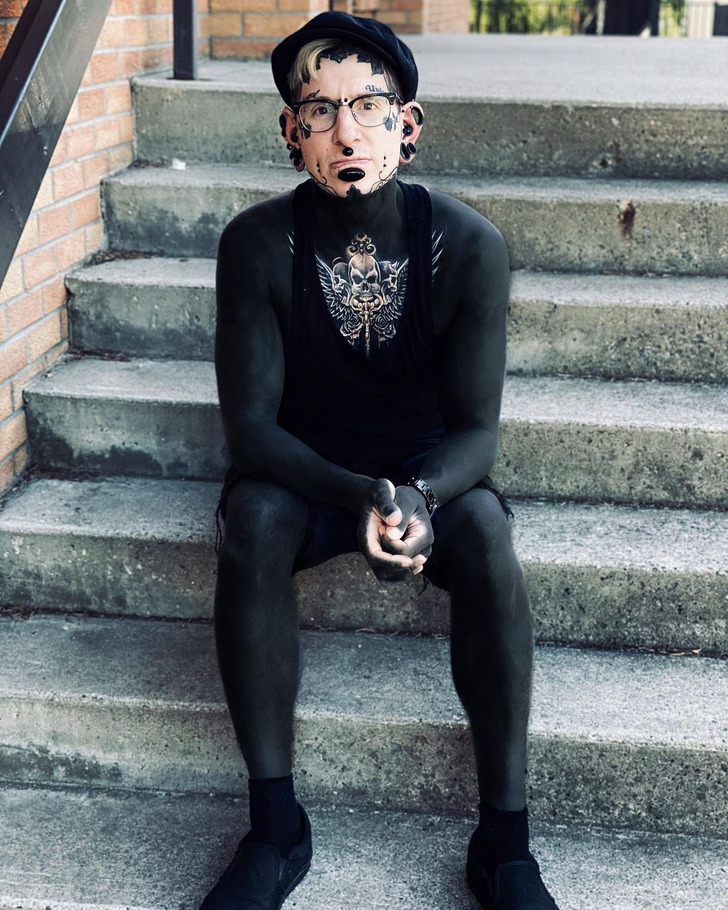
As one commenter on Remy’s story put it, “You give the cloth and care about what you do. As long as you can put a roof over your child’s head, it’s not anyone’s job.” Ultimately, it’s up to each individual to decide how they want to present themselves to the world, and that decision should not be used to judge their worth as a parent.
As we conclude this story of unfair judgment and inked journeys, it’s only the beginning of our exploration into the world of those living tattooed lives. In our next article, we’ll introduce you to a mom whose 800 tattoos have become a barrier to employment, shedding light on the surprising consequences of living life fully inked.
Preview photo credit ephemeral_remy / Instagram, ephemeral_remy / Instagram
Malia Obama, 25, debuted a new moniker as she began her Hollywood career
Growing up in front of the eyes of the public isn’t something Malia Obama is not familiar with. Being the daughter of the former president of the United States, Barak Obama, she has spent her life under the limelight, and even today, the media is interested in her every move.
The 25-year-old just presented her directorial debut, The Heart, at the Sundance Film Festival. In the Sundance Institute’s “Meet the Artist” spotlight video, Malia Obama revealed she was going by the name Malia Ann, thus ditching her moniker.
Malia, who was born Malia Ann Obama on July 4, 1998, has her middle name honoring her paternal grandmother, who died from ovarian cancer at the age of 52 in 1995, and now, she has dropped her last name in favor of her middle name.
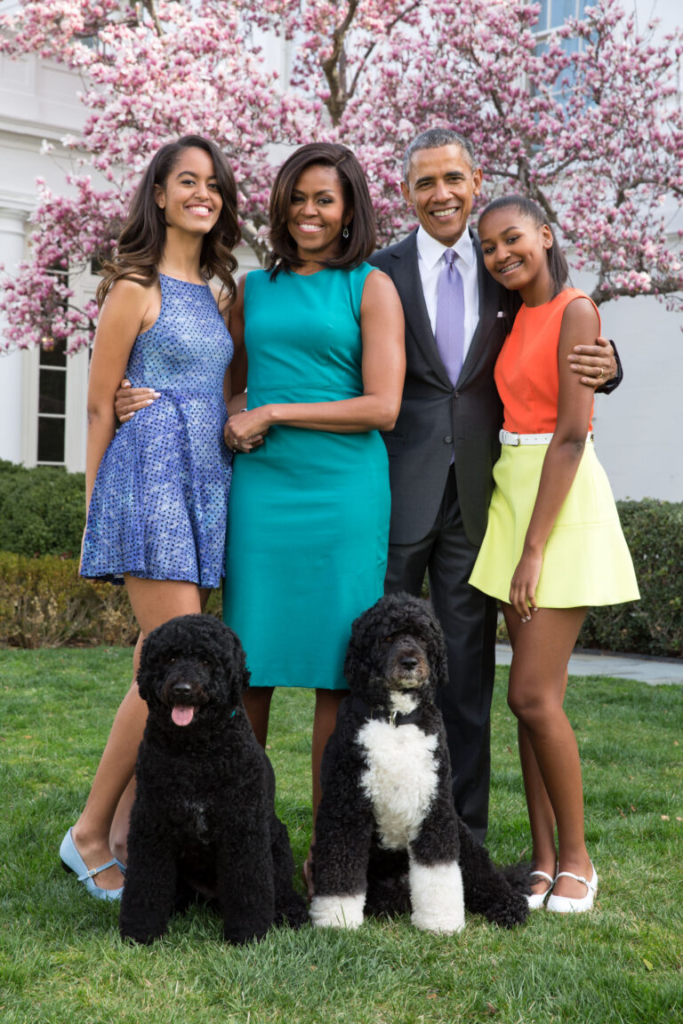
Speaking of the short film for which she served as both director and screenwriter, Malia said. “This is an odd little story, somewhat of fable, about a man grieving the death of his mother after she leaves him an unusual request in her will.” Further, in the YouTube clip of the short film, she wrote, “The film is about lost objects and lonely people and forgiveness and regret, but I also think it works hard to uncover where tenderness and closeness can exist in these things.”
The Heat isn’t her first attempt into the profession. Previously, the Harvard grad worked in the writers’ room on Donald’s Amazon Prime show Swarm, co-writing the fifth episode, “Girl, Bye.”

“She’s a very professional person,” Swarm‘s co-creator Janine Nabers said Malia in a January 2023 Vanity Fair interview. “She’s an incredible writer and artist. She made significant contributions… She’s very, truly committed to her craft.”
Swarm‘s executive producer Stephen Glover also spoke of Malia. “We can’t be easy on her just because she’s the [former] President’s daughter,” he told Vanity Fair. “No, she is really down-to-earth and cool. So it’s not an issue at all.”

Malia Obama isn’t the first celebrity who made the decision to ditch their family name. Other celebs have done that before, including Nicolas Cage, who changed his last name from Coppola, and Angelina Jolie, who dropped her surname, Voight.
For her directorial debut, Malia looked cozy, with minimal makeup, her curly hair down with small braids scattered throughout.


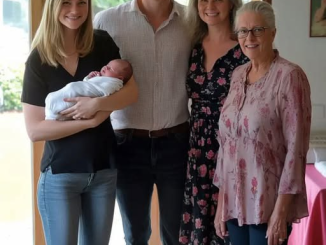
Leave a Reply